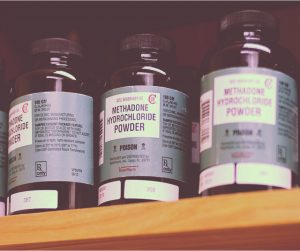[vc_row][vc_column][vc_cta h2="Help Is Only A Phone Call Away" txt_align="center" shape="round" style="flat" color="vista-blue" el_width="sm" use_custom_fonts_h2="true" use_custom_fonts_h4="true"]Call Now 855-227-9535[/vc_cta] Fentanyl is a powerful opioid analgesic that’s best described as “similar to morphine, but 100 times more potent”. The potency of this drug is what makes it so dangerous, as people may be unaware of the fact that it can cause an overdose! If someone abuses this drug, the risk of experiencing an overdose greatly increases. And because we want to avoid these life-threatening scenarios by making sure we’re using prescription medications properly, here’s everything you need to know about Fentanyl.
What is it?
 This drug is a highly potent synthetic opioid. It is classified as a Schedule II prescription drug. This means it has approved medical uses, but it also has the potential to be abused. Therefore, Fentanyl is best used by following a doctor’s prescription. Fentanyl is typically taken if the patient is in severe pain. For example, if they recently went through a surgery, then this drug may be prescribed to block the pain. Sometimes it is also used to help patients with chronic pain. Fentanyl goes by several names such as Actiq, Duragesic, and Sublimaze, all of which are prescription names of the medication. But you’ll be surprised by the fact that this drug also has street names, owing to the fact that many people abuse it to get high. It goes by street names like Apache, China Girl, Dance Fever, Jackpot, Murder 8, and TNT.
This drug is a highly potent synthetic opioid. It is classified as a Schedule II prescription drug. This means it has approved medical uses, but it also has the potential to be abused. Therefore, Fentanyl is best used by following a doctor’s prescription. Fentanyl is typically taken if the patient is in severe pain. For example, if they recently went through a surgery, then this drug may be prescribed to block the pain. Sometimes it is also used to help patients with chronic pain. Fentanyl goes by several names such as Actiq, Duragesic, and Sublimaze, all of which are prescription names of the medication. But you’ll be surprised by the fact that this drug also has street names, owing to the fact that many people abuse it to get high. It goes by street names like Apache, China Girl, Dance Fever, Jackpot, Murder 8, and TNT.
How is it Used?
Fentanyl is often administered by injecting it into the bloodstream. However, it can also be given as a transdermal patch. It is even available in lozenges. Unfortunately, there is also non-pharmaceutical Fentanyl being produced and distributed by clandestine laboratories. It is sold as a powder, as a tablet, or even as a piece of blotter paper. Sometimes it is presented as tablets that mimic less potent opioids. Recreational users may snort, swallow, or inject Fentanyl in order to get high.What are the Adverse Effects of Fentanyl Abuse?
Abusing this drug comes with consequences, of course. And because Fentanyl is so potent, it’s not too hard to encounter these health problems. When taken, the person will first feel euphoric, relaxed, and sleepy. But side effects soon kick in, including constipation, sedation, confusion, and respiratory depression. It is also easy to get addicted to this drug and develop physical dependence. A drug dependent individual will become unable to quit without going through intense withdrawal. Long-term users are at risk of fatal overdose or life-threatening withdrawal. And the person will not be able to quit on their own terms because of the constant cravings caused by Fentanyl. In the worst cases, Fentanyl abuse can lead to respiratory arrest, unconsciousness, coma, and death. [maxbutton id="3" ]What makes Fentanyl so Dangerous?
When used right, the drug is quite helpful, as is most opioids and other narcotics. But those who abuse these medications risk getting all sorts of physical and mental health problems due to the fact that Fentanyl attaches directly to the opioid receptors of the brain. It can affect the areas of the brain that control your breathing rate. At high doses, Fentanyl can cause breathing to stop completely. Used properly, Fentanyl can help people. But if you or someone you love is struggling with Fentanyl addiction, don’t hesitate to seek help. A drug rehab facility will know what to do to help deal with its effects. Look for an addiction treatment center near you!
The previous article What is Fentanyl: Everything You Need to Know was originally published to Rehab Near Me
from
https://www.rehabnear.me/fentanyl-information/

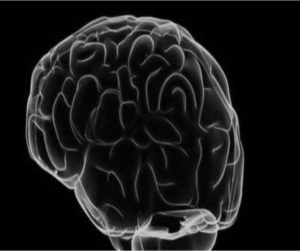 But first, let’s have a brief overview of methadone. This substance is an opiate medication that is commonly used for addiction treatment.
But first, let’s have a brief overview of methadone. This substance is an opiate medication that is commonly used for addiction treatment. 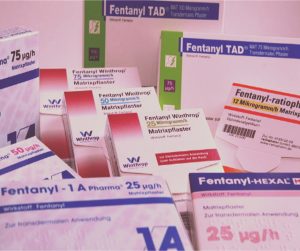
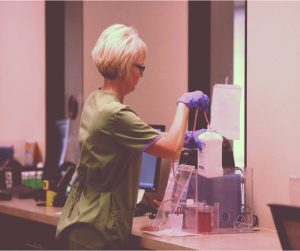
 Just like with Steven Lancione who was once a mobster yet he was able to overcome his addiction through the help of meditation. It is very important for drug users to realize that there will always be a way out. Meditation is one of them and another one is through
Just like with Steven Lancione who was once a mobster yet he was able to overcome his addiction through the help of meditation. It is very important for drug users to realize that there will always be a way out. Meditation is one of them and another one is through  In Utah, the Beechtree Diagnostics has partnered with 10, 000 Beds organization to provide free diagnostic testing for those who are recovering from addiction. This is a big help to lessen the number of drug addicts while increasing the numbers of those who will be willing to
In Utah, the Beechtree Diagnostics has partnered with 10, 000 Beds organization to provide free diagnostic testing for those who are recovering from addiction. This is a big help to lessen the number of drug addicts while increasing the numbers of those who will be willing to 

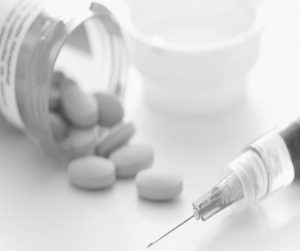 A judge told a woman who pleaded guilty to breaching probation she owes it to her two children to deal with her drug addiction. All urine tests found the presence of controlled substances in Carrie Ellen Lawlor, resulting in the breach charge. Provincial Court Judge John Douglas told Lawlor he was giving her a break by not imposing jail time but placing her on 15 months of probation. Click
A judge told a woman who pleaded guilty to breaching probation she owes it to her two children to deal with her drug addiction. All urine tests found the presence of controlled substances in Carrie Ellen Lawlor, resulting in the breach charge. Provincial Court Judge John Douglas told Lawlor he was giving her a break by not imposing jail time but placing her on 15 months of probation. Click 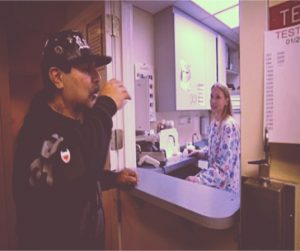
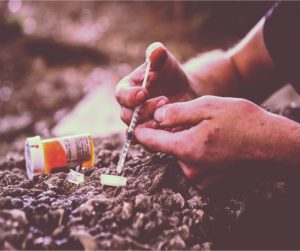 Now that the election is approaching, more politicians are promising to tackle the issue. Just like Jay McMahon who has lost his son to drug addiction says that he will tackle the crisis in opioid effectively if ever he gets elected. As the deaths by opioid keep on increasing, more initiatives to end the problems is very important, aside from having a lot of
Now that the election is approaching, more politicians are promising to tackle the issue. Just like Jay McMahon who has lost his son to drug addiction says that he will tackle the crisis in opioid effectively if ever he gets elected. As the deaths by opioid keep on increasing, more initiatives to end the problems is very important, aside from having a lot of 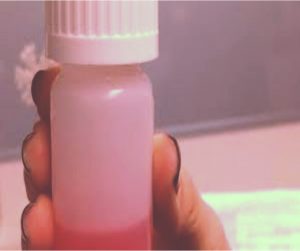
 Quitting addiction is very difficult and new research study has suggested that eliminating junk foods from our diet can have similar symptoms of withdrawal like the ones experienced by people who are addicted to drugs. This makes it a challenge for so many people and this is why help should be more available for them such as having more
Quitting addiction is very difficult and new research study has suggested that eliminating junk foods from our diet can have similar symptoms of withdrawal like the ones experienced by people who are addicted to drugs. This makes it a challenge for so many people and this is why help should be more available for them such as having more 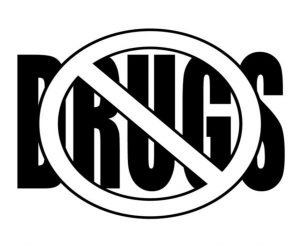 In Canton, GA, the Cherokee County School District next week will host a PTA-sponsored program for parents on drug addiction and prevention in Canton. The District 13 Georgia PTA program is 9:30 a.m. to 1:30 p.m. Wednesday, Oct. 24 in the Dr. Frank R. Petruzielo Educational Services Facility auditorium at 1205 Bluffs Parkway. The cost is $10 and includes lunch; check-in begins at 9 a.m. Registration is due by Friday, Oct. 19 and can be done online by clicking here. Click
In Canton, GA, the Cherokee County School District next week will host a PTA-sponsored program for parents on drug addiction and prevention in Canton. The District 13 Georgia PTA program is 9:30 a.m. to 1:30 p.m. Wednesday, Oct. 24 in the Dr. Frank R. Petruzielo Educational Services Facility auditorium at 1205 Bluffs Parkway. The cost is $10 and includes lunch; check-in begins at 9 a.m. Registration is due by Friday, Oct. 19 and can be done online by clicking here. Click 
 The effects of addiction should be dealt with in order to save the health and lives of those who are under the effects of
The effects of addiction should be dealt with in order to save the health and lives of those who are under the effects of 
 The worse thing is the fact that drugs and alcohol can actually cause these athletes their career and will just make things worse for them. Although there are a lot of
The worse thing is the fact that drugs and alcohol can actually cause these athletes their career and will just make things worse for them. Although there are a lot of 
 Today, the worse thing is that their addiction is affecting so many babies as a result of having mothers who are addicted to drugs. The drug gets passed on from the mother to the fetus through the bloodstream which leads to babies suffering withdrawal symptoms after birth. It also causes developmental delays in their childhood. This is why we need more
Today, the worse thing is that their addiction is affecting so many babies as a result of having mothers who are addicted to drugs. The drug gets passed on from the mother to the fetus through the bloodstream which leads to babies suffering withdrawal symptoms after birth. It also causes developmental delays in their childhood. This is why we need more 